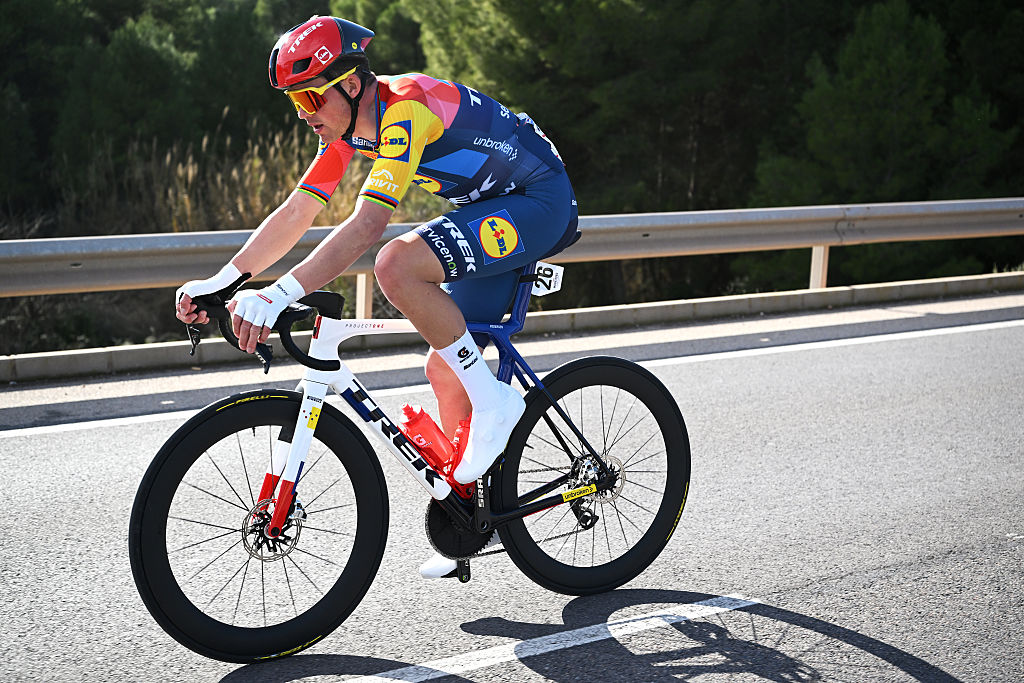MTN-Qhubeka sowing seeds for African cycling
Samsung signs on as presenting sponsor
The latest race content, interviews, features, reviews and expert buying guides, direct to your inbox!
You are now subscribed
Your newsletter sign-up was successful
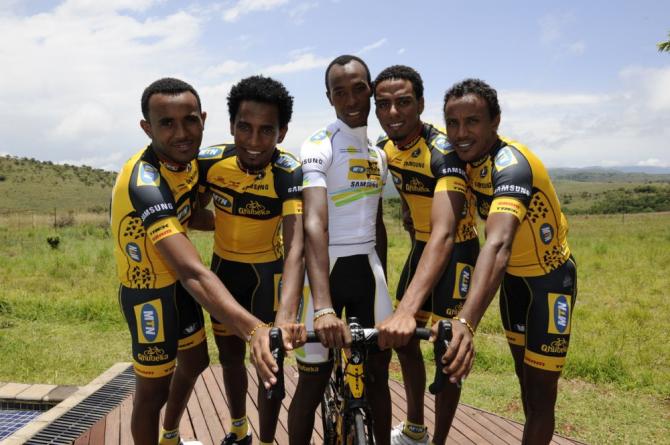
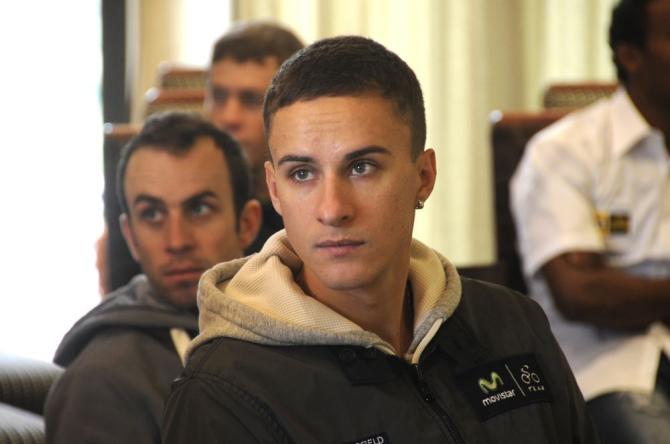
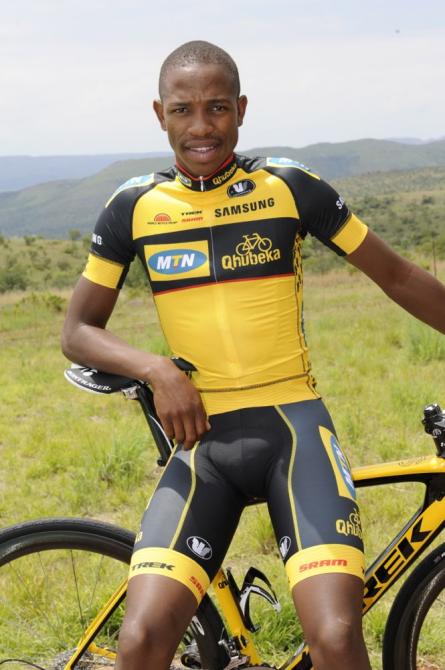
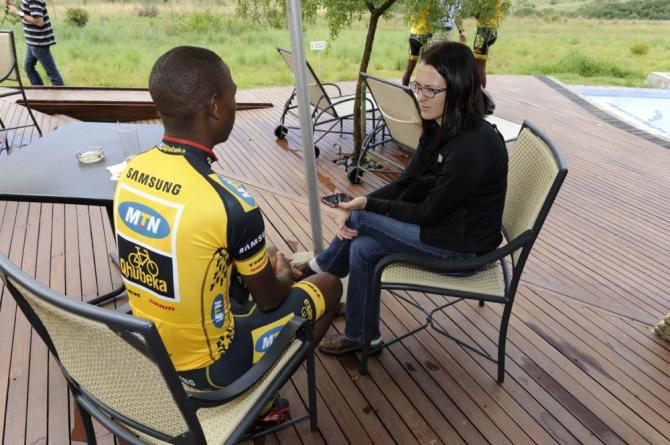

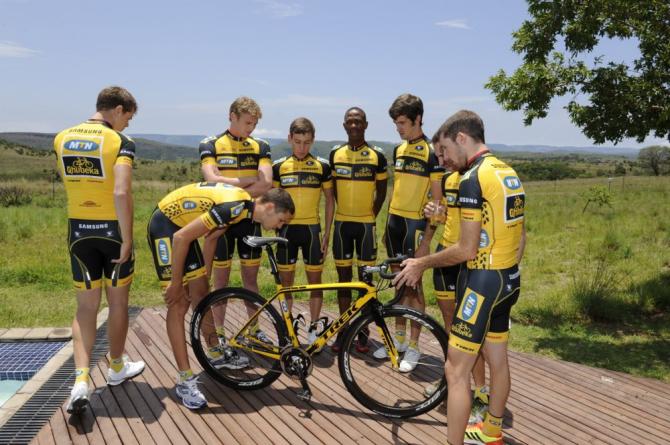
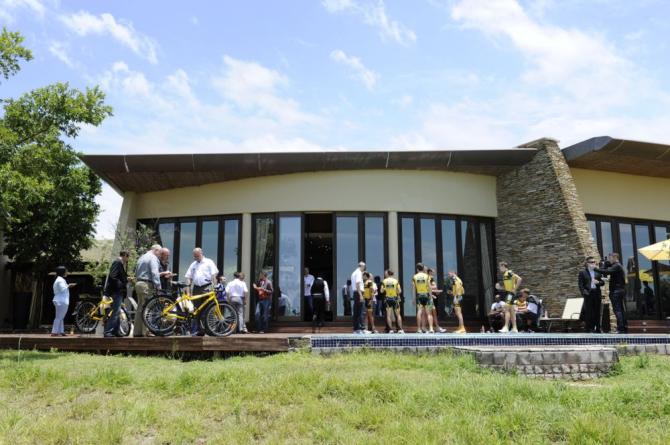
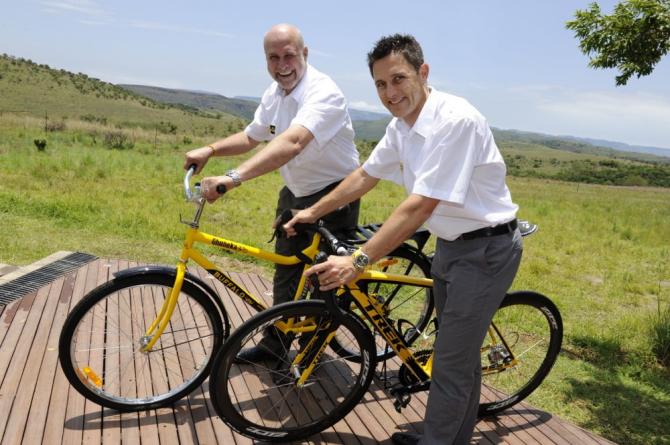
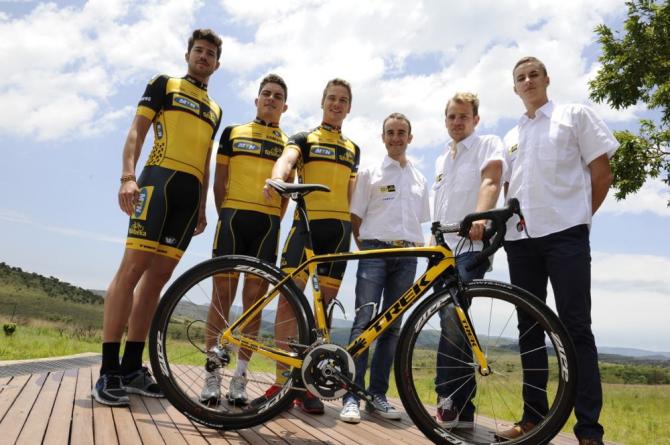
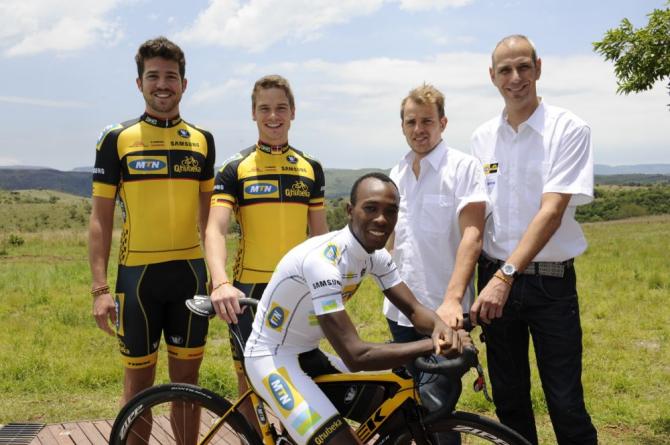
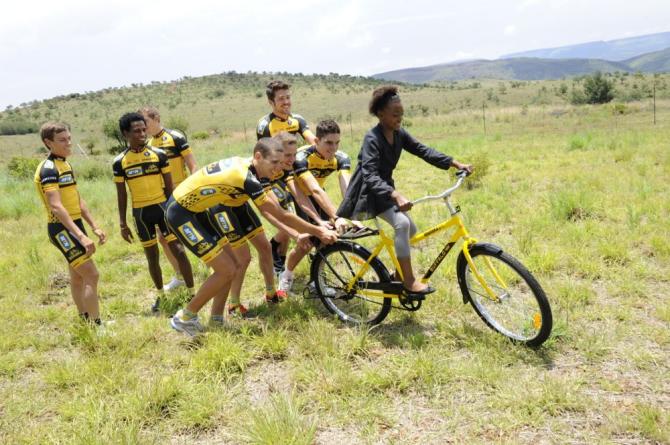
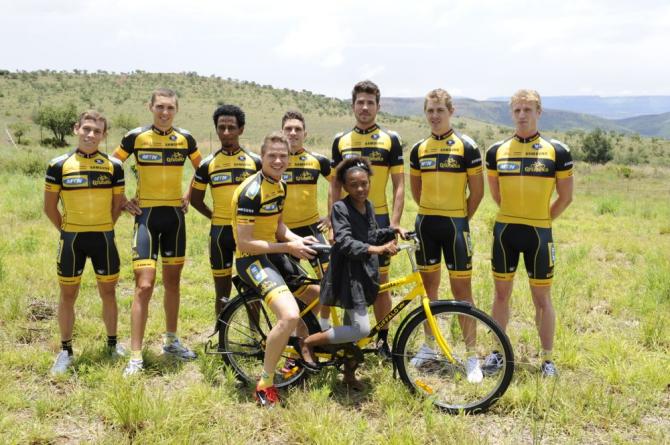
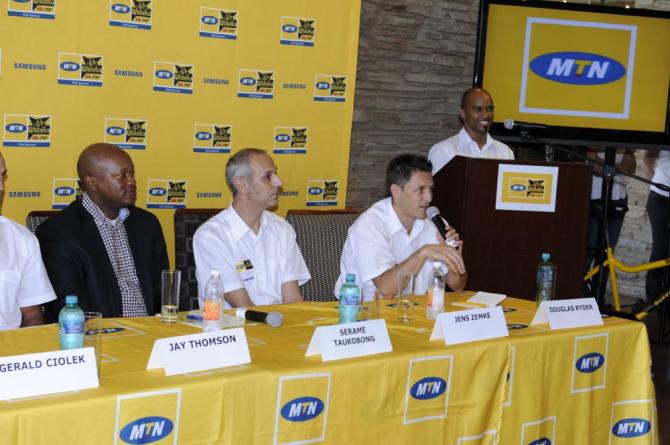
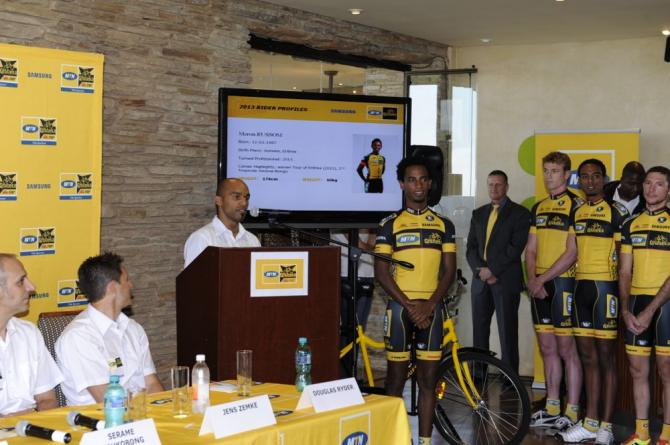
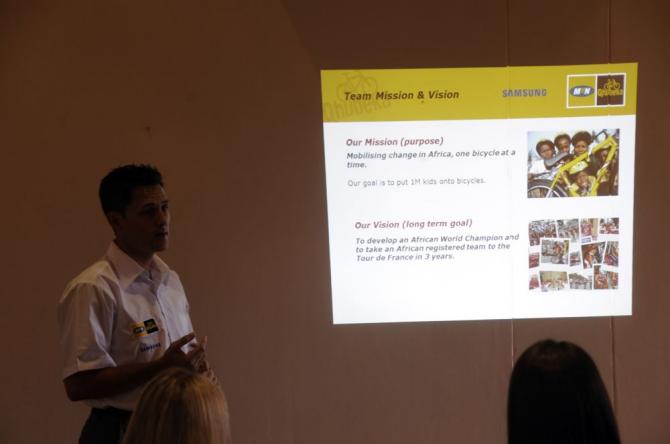
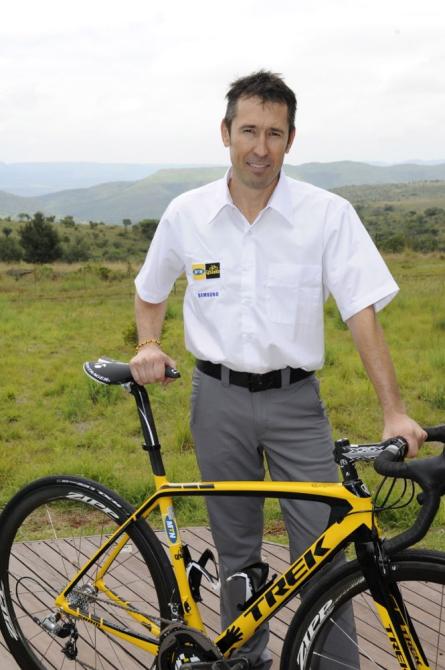
For most cyclists, rain is considered a curse, but in Africa it is a blessing that brings life. For the MTN-Qhubeka team that was unveiled at the Cradle of Humanity heritage site outside of Johannesburg, the drenching downpour that soaked the sweeping vistas of the Maropeng Hotel was an optimistic omen for this ambitious project which hopes to sow the seeds of cycling success for its riders and the African continent.
Compared with Europe, cycling in Africa is still in its infancy. The continent has vast areas where people have to walk upwards of 15 kilometers to school, to the doctor or to town. This may be what has contributed to the incredible success of African endurance runners, and MTN-Qhubeka team principal Doug Ryder is hoping that by getting more bicycles to children (the mission of the Qhubeka non-profit association) and putting bicycle racing in front of the public with this African team, it will inspire more of the continent's innately talented athletes to delve into the sport.
Qhubeka is affiliated with World Bicycle Relief but it uses a work-to-earn model, whereby people can plant trees or clean up trash in their community to earn credit toward a bike. Once they've earned enough, they are presented with the same 22kg, durable work-horse of a bike that WBR uses, a simple, sturdy machine that can haul 100kg on its rear rack.
The uplifting stories of how Qhubeka is improving life in South Africa have attracted not only the attention of new presenting sponsor, Samsung, but also the UCI, which awarded the team a Professional Continental license, and of race organisers such as RCS Sport or ASO who see the value of bringing an enormous new audience - the continent of Africa - to their races by having the team competing. After all, more than half of Africa speaks French as a result of colonization, and Eritrea was an Italian colony - all a solid base for building a cycling following.
However, Ryder takes the same sustainable, long-term approach as Qhubeka does with his team: he will not try to enter a Grand Tour in the first season. After meeting with the Giro d'Italia organisers this fall, he said there was interest in bringing the team to the Italian race.
"They wanted us to come to the Giro next year, but I said no. We simply won't be ready. It's in May, and we don't want to kill our riders. We're not in this for marketing, we're in it for sustainability of our African riders. The last thing we want to do is put, for example, an Ethiopian or Eritrean in the Giro and then they don't finish. Then they won't ride a bike again, or they'll go back to their countries and say this sport is too hard. Then it will hurt a whole nation of future bike riders. We want to nurture our riders and take them to the highest level in time."
That's not to say the team doesn't have ambitions for bigger races in Europe: In 2013 they hope to compete in top races such as Tirreno-Adriatico and Milan-Sanremo, and the ultimate goal is to field a team in the Tour de France, but that may be at least two years down the road.
The latest race content, interviews, features, reviews and expert buying guides, direct to your inbox!
Short-term ambitions include being in the top 15 of the European Tour in order to qualify for the time trial world championships, to win at least 10 UCI races and as many national championships as possible, and to gain the admiration and respect of the rest of the world.
The 21-rider team has 15 riders from Africa: nine from South Africa, three from Eritrea, one from Algeria, one Ethiopian and one Rwandan as well as six European riders, who are the best known to most cycling fans. Gerald Ciolek, who comes from Omega Pharma-Quickstep, and former German champion Martin Reimer, who is making a comeback after a brief one-year retirement, Ignatus Konovalovas and Sergio Pardilla from Movistar and Andreas Stauff, formerly of Quickstep, have joined the team.
Black Africans Adrian Niyonshuti, a three-time Rwandan champion, the Eritrean trio Ferekalsi Debesay, Meron Russom and Jani Tewelde, Ethiopian Tsgabu Grmay and South African Songeso Jim will stand out not only as examples of the increasing globalisation of cycling, but along with the rest of the team as fierce competitors with a flair for aggressive racing.
The South African contingent is led by Jay Thomson, who leaves UnitedHealthcare to help further the cause of African cycling, Jaco Venter (who raced with Verandas Willems in 2011), Dennis Van Nierkerk and Martin Wesemann, with young riders Bradley Potgieter, Jacques Janse van Rensburg, Louis Meintjes and Johann Van Zyl.
Algeria's Youcef Reguigu rounds out the roster.
Directeurs include Jens Zemke and Kevin Campbell, while Brent Copeland, a former directeur for Lampre, has stepped away from coaching MotoGP rider Ben Spies and will return to the peloton as MTN-Qhubeka's European logistics manager.
Becoming a fan favourite
Konovalovas, Reimer and Zemke were all previously with the Cervelo TestTeam together, and Ryder says that MTN-Qhubeka will take a similar approach to how Cervelo's first managing director Thomas Campana helped to make that team a fan favourite. He aims for the team to be more than a one-dimensional racing machine.
"The guys are going to spend a lot more time interacting with people before and after races, they're not just going to finish, get in the bus and go home. We're going to invite fans to be part of the team on social media. We'll be a team that people can touch and feel and interact with, not be like most sports where people are behind fences."
Ryder also hopes the team will help reinvigorate cycling's fans and to bring them hope after a difficult year filled with the past doping revelations of Lance Armstrong and his US Postal team. He says that because the team rides for the higher purpose of mobilizing children with bicycles through Qhubeka and not just to win that this brings less temptation for doping.
Although South Africa isn't free from doping scandal - David George, a former US Postal rider, tested positive for EPO this year - Ryder says that doping is largely a non-issue in Africa. "They just don't have access, and they're not exposed to it," he said. "We've also done internal testing and checked, and have been 100% ethical in the team. With the international riders, we explained that it's not winning at all costs, that you come into this team to make a difference, to take an African rider under your wing and bring him to a higher level, and so there's no need for that."
He also takes the same zero-tolerance approach as Team Sky. "We don't take anyone with a past history (of doping). We're 100% clean from the start. We don't employ anyone with a dark cloud over them. We don't want any of that in our team. They all signed code of sportsmanship, which is exactly [like Sky's zero tolerance policy].
"In a year's time I think we'll be a team a lot of riders want to ride for. First, we're going to have fun, second, our infrastructure is going to be great and our riders will go to races and race positively and the public will want to see them race."
As the riders filed in for their presentation to the public, the clouds lifted, and the warm, golden African sun emerged, making itself available for the rain-drenched seeds to sprout, create energy from its rays, to grow and bear fruit.

Laura Weislo has been with Cyclingnews since 2006 after making a switch from a career in science. As Managing Editor, she coordinates coverage for North American events and global news. As former elite-level road racer who dabbled in cyclo-cross and track, Laura has a passion for all three disciplines. When not working she likes to go camping and explore lesser traveled roads, paths and gravel tracks. Laura specialises in covering doping, anti-doping, UCI governance and performing data analysis.
